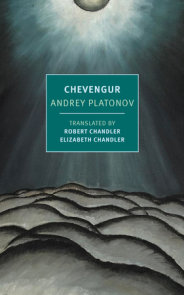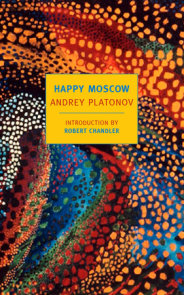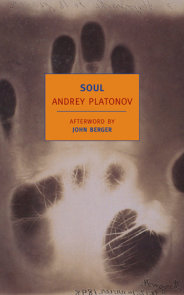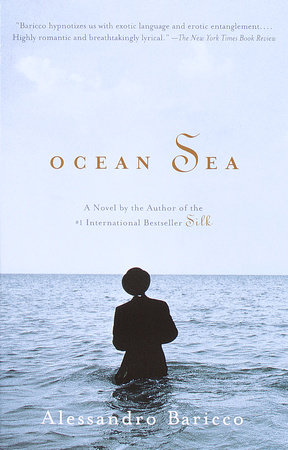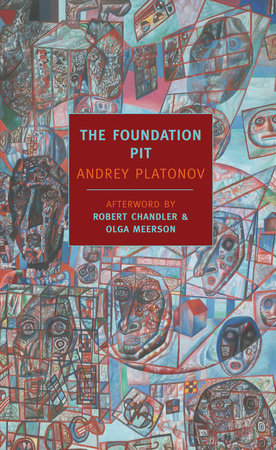

The Foundation Pit
By Andrey Platonov
Afterword by Robert Chandler
Translated by Robert Chandler, Elizabeth Chandler and Olga Meerson
By Andrey Platonov
Afterword by Robert Chandler
Translated by Robert Chandler, Elizabeth Chandler and Olga Meerson
Category: Literary Fiction

-
$16.95
Apr 21, 2009 | ISBN 9781590173053
Buy the Paperback:
YOU MAY ALSO LIKE

Wuthering Heights

Radiant Heat
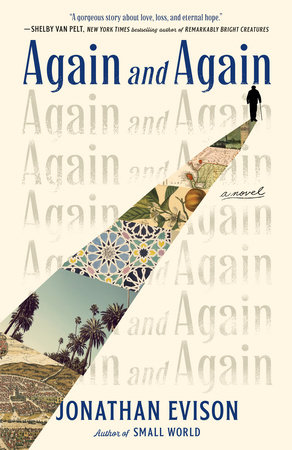
Again and Again
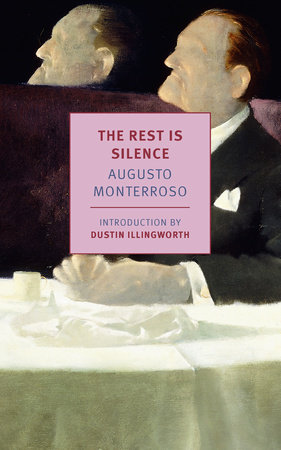
The Rest Is Silence
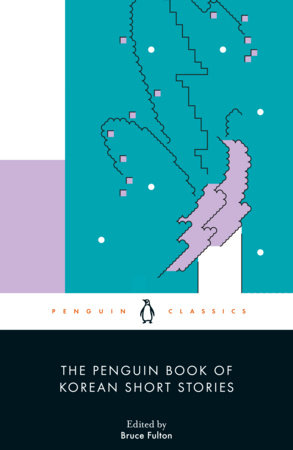
The Penguin Book of Korean Short Stories
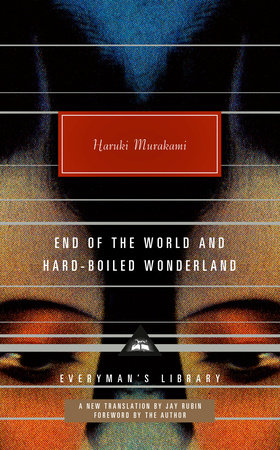
End of the World and Hard-Boiled Wonderland

The Hunter
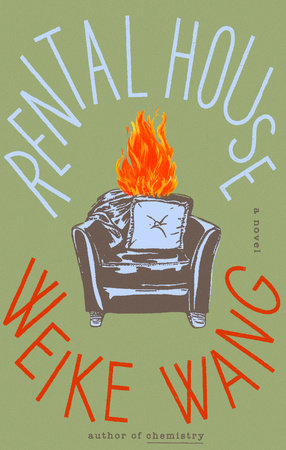
Rental House

Birds, Beasts and a World Made New
Praise
“I squint back on our century and I see six writers I think it will be remembered for. They are Marcel Proust, Franz Kafka, Robert Musil, William Faulkner, Andrey Platonov and Samuel Beckett…. They are summits in the literary landscape of our century … What’s more, they don’t lose an inch of their status when compared to the giants of fiction from the previous century.”—Joseph Brodsky
“Hallucinatory and terrifying and filled with incredible language, this is Platonov’s finest.” —Flavorwire
“The most exciting literary discovery I made this past year was Andrey Platonov… his reputation has grown to the point that he is frequently considered the greatest Russian prose writer of the twentieth century. His masterpiece is The Foundation Pit, which boils all the utopianism and horror of the forced collectivization and industrialization of the early 1930s into 150 tightly written…. English-speaking readers are lucky to have the superb translation by Robert Chandler and Olga Meerson, published last year by New York Review Books…. Platonov’s brilliant short works can be sampled in the collection Soul, also published by NYRB.” —The Millions
“Andrey Platonov has not yet received the attention he richly deserves here…[he] turns out to be one of the finest writers of the 20th century, worthy to stand alongside Kafka and Joyce.” –The Arts Fuse
“He has been described as the greatest Russian writer of the 20th century, but some of his most controversial works, written between 1927 and 1932, were not published in the Soviet Union until the 1980s. Platonov’s The Foundation Pit is a satirical response to Stalin’s programme of crash industrialisation and collectivisation.” –Guardian
“Platonov’s writing can retain enormous power in English…The foreign reader can also now begin to get an idea of the shape of Platonov’s development as a writer. The Foundation Pit, written at the time of the brutal collectivization campaign of the late 1920s, plays out an image of equally brutal directness–a construction site on which nothing ever gets built. The pit just gets wider and deeper until it comes to represent a grave – of Stalinism’s Promethean ambitions, and of the author’s political idealism. The effect on the reader is almost physically winding.” –The Moscow Times
“Acclaimed by Joseph Brodsky as one of the great Russian writers of the twentieth century, Andrey Platonov comes with a formidable reputation, matched only by his relative obscurity.” –The Observer (London)
“Andrey Platonov is the most exciting Russian writer to be rediscovered since the end of the Soviet Union. Born in 1899, one of a railway worker’s 10 children, he was an engineer, a party member and a model proletarian writer before doubts about Communism, and his literary imagination, landed him in trouble with Stalin. His work stopped being published in the early 1930s and only resurfaced 40 years after his death in 1951…The Foundation Pit will stand out as his masterpiece.” –The Independent (London)
“In Platonov’s prose, it is impossible to find a single dull or inelegant sentence… For Platonov’s work testifies to the only political responsibility owed by any writer to any reader: to describe the world as faithfully, and as compellingly, as possible. Platonov deserves to be published; he rewards being read.” –The Times (London)
“In Russian writer Andrei Platonov’s novel The Foundation Pit, written in 1930 but not published in Russia until 1987, the characters must struggle not only with the interminable Soviet works project of the title, but with strange spiritual maladies…One of the most deeply original writers of the 20th century.” –The National Post
“Nearly all his work is rooted in a particular place and time, and it is hard to think of another writer who so expertly animated the sadness and unease of the Soviet period. His fiction, at its best, has the timeless quality of parable or folklore.” –New Statesman
“Counting Andrei Platonov among the greatest Russian prose writers of this century, Joseph Brodsky considered him to be ‘quite untranslatable, and, in one sense, that’s a good thing: for the language into which he cannot be translated.’ The Foundation Pit distresses the Russian language, showing it splayed and shattered by the demands of revolution. In this nihilistic allegory, completed in 1930 but not published in the Soviet Union until 1987, workers dig the foundation pit for an enormous dwelling to be called the All-Proletarian Home…a grim, readable Platonov whose most familiar neighbor, in apocalyptic sensibility, is Samuel Beckett.” –The New York Times
“Andrey Platonov is one of Russia’s greatest modernist scribes. Like his fellow science-fiction writer Yevgeny Zamyatin – author of the astonishing futurist novel We, published in the 20s – he was also among that tortured country’s most prescient literary artists…The Foundation Pit, written in 1930 and now published for the first time in English, is his most striking attempt to convey the extreme estrangement suffered by ordinary people as collectivisation in agriculture proceeded across the USSR…one of the most prophetic nihilistic tales of this ruined century.” –The West Australian
“Completed in 1930 but unpublished during his lifetime, Platonov’s masterpiece, a scathing satire of the Soviet attempt to build a workers’ utopia, gauges the vast human tragedy of Stalinism, portraying a society organized and regimented around a monstrous lie, and thus bereft of meaning, hope, integrity, humanity…His dark parable is a great dirge for Mother Russia as well as a savage analysis of the split consciousness fostered by an oppressive system. Platonov’s books are still being unearthed in Russia decades after his death.” –Publishers Weekly
“Andrey Platonov’s absurdist parable The Foundation Pit is a masterly achievement…Much of the genius of The Foundation Pit lies in Platonov’s objective style and the lively invariably abusive dialogue, contrasting with oddly moving, isolated asides of brittle beauty. It is a Russian Waiting for Godot crossed with Lewis Carroll and Maxim Gorky – there is even a bear working as an apprentice blacksmith, frantically making horseshoes as if there were no tomorrow. And in this book, there isn’t. According to the late Joseph Brodsky, Platonov ‘simply had a tendency to see his words to their logical – that is absurd, that is totally paralyzing end. In other words, like no other Russian writer before or after him Platonov was able to reveal a self destructive, eschatological element within the language itself.’ The Foundation Pit is extraordinary: strange, almost abrupt, a hallucinatory, nightmarish parable of hysterical laughter and terrifying silences.” –The Irish Times
“These books are indescribable. The power of devastation they inflict upon their subject matter exceeds by far any demands of social criticism and should be measured in units that have very little to do with literature as such.” –Joseph Brodsky
“A 20th-century Russian masterpiece…The Foundation Pit is a savage satire on collectivisation, a nightmarish vision of humanity trapped by the infernal machinery of totalitarianism…Platonov’s grimly comic vision of a brave new world is as universal in its implications as any other account of a hellish utopia our century has produced..the dance of madness in The Foundation Pit is articulated as the suppression of anything human – sorrow and joy, hope and despair.” –The Sydney Morning Herald
“Like Candide, Platonov’s novel is a plotless allegory of human striving…The forced industrialisation of Russia, which began in 1928 and is the historical background of The Foundation Pit, left an estimated 15.2m dead. Even if one considers Platonov’s masterpiece merely as a conte philosophique, one may note that his model universe was more amply observed than Voltaire’s. He was also a writer perhaps the only writer to have advanced Russian prose beyond what had been achieved by Chekhov not a philosopher in literary disguise…” –The Times (London)
“Brilliant…Obviously a masterpiece.” –Paul Theroux
“Perhaps the only writer to have advanced Russian prose beyond what had been achieved by Chekhov.” –The Times (London)
“One of Russia’s most insistent and valuable dissident voices.” –Los Angeles Times
“Among the greatest Russian prose writers of this century.” –New York Times
“In Russia it is Platonov who is increasingly described as the best writer of the post-revolutionary epoch.” –Times Literary Supplement (London)
Completed in 1930 but unpublished during his lifetime, Platonov’s masterpiece, a scathing satire of the Soviet attempt to build a workers’ utopia, gauges the vast human tragedy of Stalinism, portraying a society organized and regimented around a monstrous lie, and thus bereft of meaning, hope, integrity, humanity…His dark parable is a great dirge for Mother Russia as well as a savage analysis of the split consciousness fostered by an oppressive system. Platonov’s books are still being unearthed in Russia decades after his death.
— Publishers Weekly
In Russia it is Platonov who is increasingly described as the best writer of the post-revolutionary epoch.
ndrey Platonov is the most exciting Russian writer to be rediscovered since the end of the Soviet Union. Born in 1899, one of a railway worker’s 10 children, he was an engineer, a party member and a model proletarian writer before doubts about Communism, and his literary imagination, landed him in trouble with Stalin. His work stopped being published in the early 1930s and only resurfaced 40 years after his death in 1951…The Foundation Pit will stand out as his masterpiece.
— The Independent (London)
21 Books You’ve Been Meaning to Read
Just for joining you’ll get personalized recommendations on your dashboard daily and features only for members.
Find Out More Join Now Sign In






